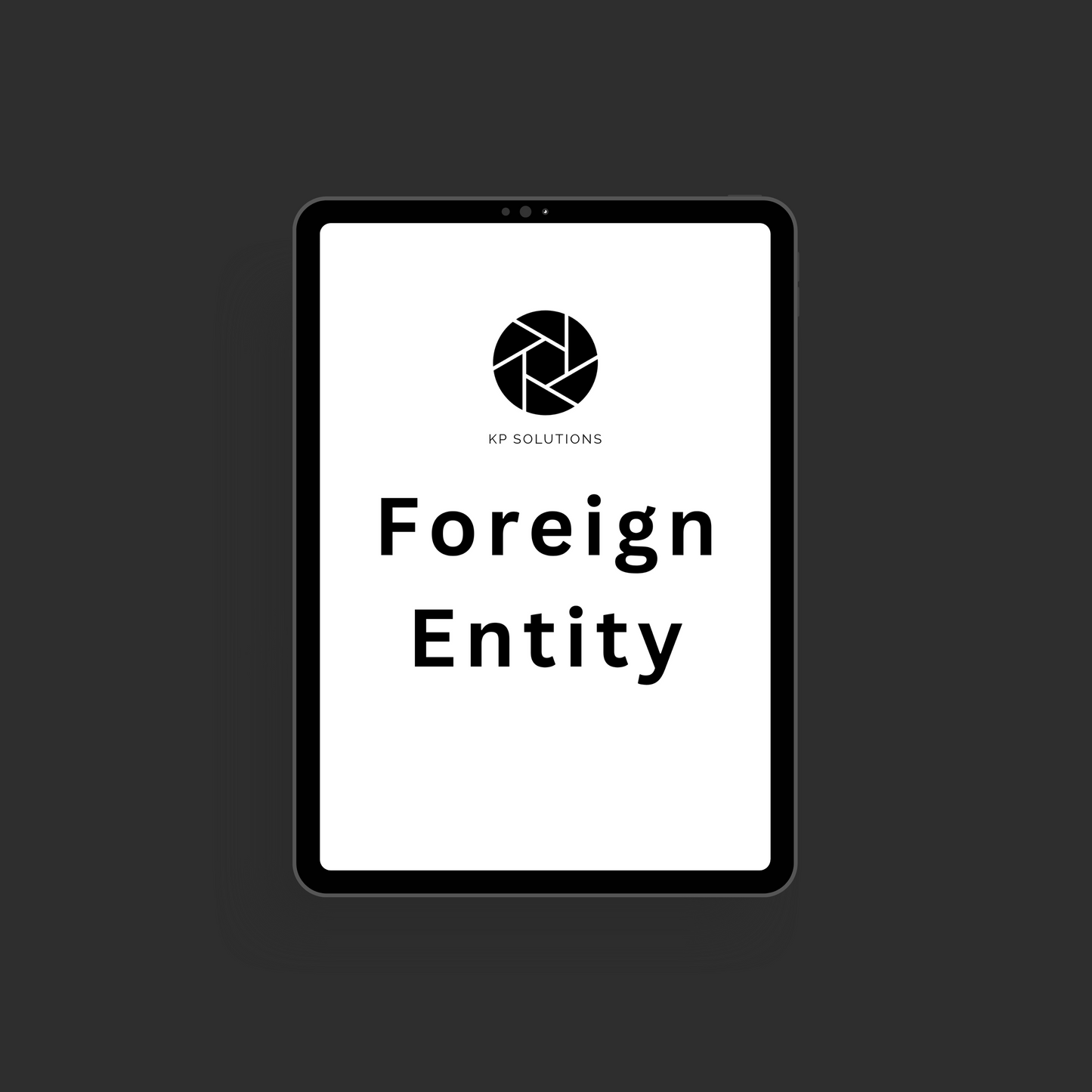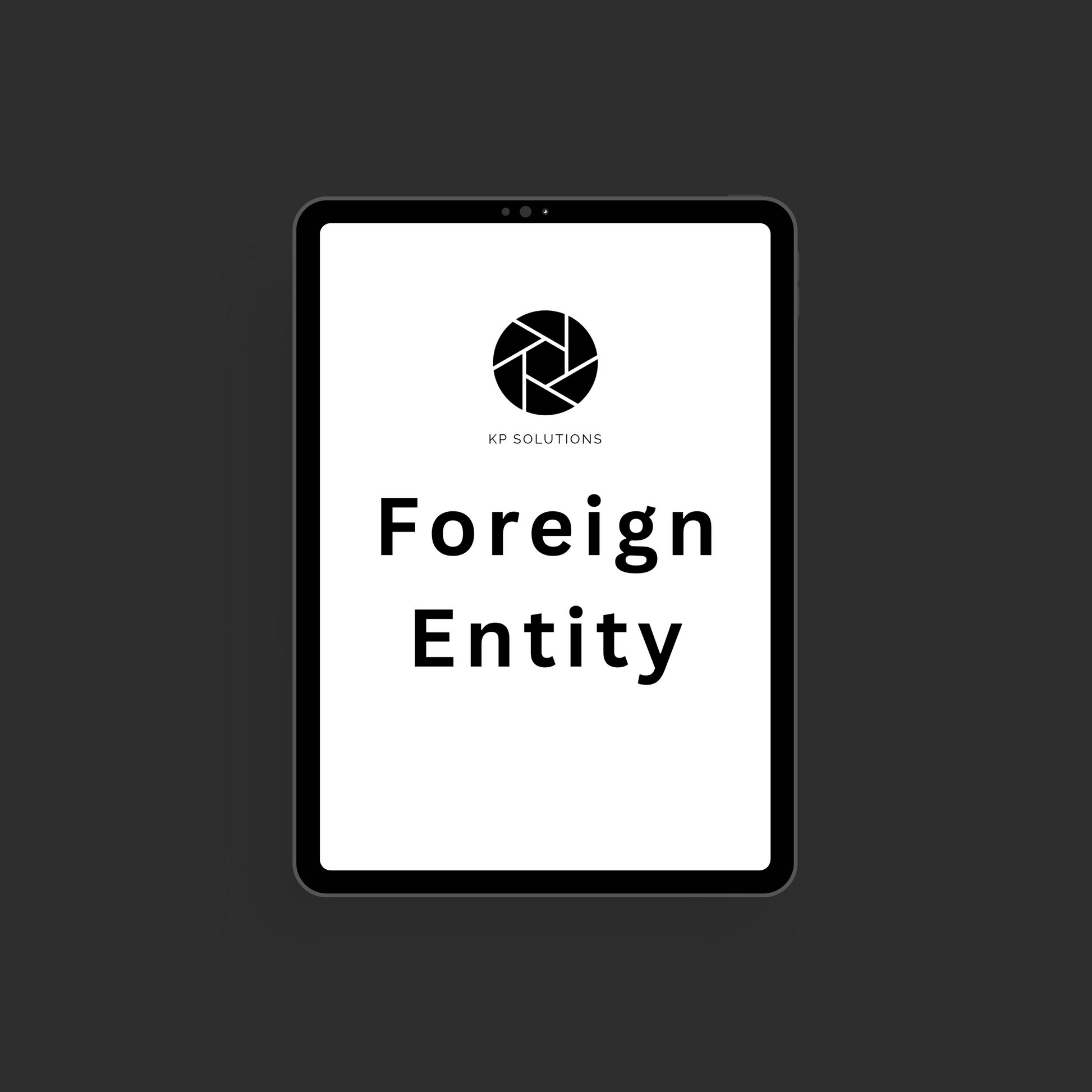Foreign Entity Formation
Foreign Entity Formation
Couldn't load pickup availability
Expand your business across the US with our streamlined foreign entity formation service. We'll expertly navigate the complexities of state-by-state regulations, ensuring you establish a compliant and legal presence in new markets.
With our support, you can unlock fresh opportunities, tap into wider customer bases, and seamlessly grow your operations throughout the country.
Our service simplifies the process, letting you focus on what you do best – running your business.
Upon payment, you will receive a confirmation email with next steps and what's needed to complete your process.
Share

Frequently asked questions
Do I need to form an LLC to start a business?
If you begin operating as a business by yourself or with someone else you will be considered a sole proprietor or a partnership unless you specifically file for an LLC. However this can leave your personal assets vulnerable and for that reason we recommend forming an LLC.
How does business asset protection work with LLCs?
One of the benefits of forming an LLC is that member assets are separated from that of the business. So if there’s a lawsuit, the LLC would be sued, not the members or owners. If the LLC is unable to pay the fees, other company-owned assets may be used to help pay down the debt.
Business asset protection helps protect the assets of the members, meaning the only thing the members own that’s at risk is the monetary investment they made in the company or any retained earnings.
What is an LLC member?
If you are an owner of an LLC, you are referred to as a member, and LLCs can have anywhere from one to several thousand members.
How do LLC owners pay themselves?
LLC owners pay themselves through “draws” or “distributions,” rather than paychecks. These types of payments don’t have income taxes withheld, so you’ll be responsible for reporting your share of profits on your tax returns.
How do LLC taxes work?
LLCs can be taxed differently depending on whether they are sole proprietorships or have multiple members, and whether or not you elect to be taxed as a corporation. You can speak with your accountant for more information. LLCs can be taxed differently depending on whether they are sole proprietorships or have multiple members, and whether or not you elect to be taxed as a corporation. You can speak with your accountant for more information.
Is it possible to have a do-it-yourself LLC?
Yes, you can form your own limited liability company, provided you follow all of your state’s applicable laws.
However, using our business formation service makes LLCs easy and inexpensive to form. Our business formation experts do the work for you and are there to answer your questions, every step of the way.
LLC vs. Inc.—is an LLC a corporation?
Both LLCs and corporations protect owners’ personal assets from business liabilities or debts. But they have some key differences, including:
- How they’re owned - LLCs have one or more individual members, but corporations have shareholders.
- How they’re maintained - LLCs generally have less formal record-keeping and reporting requirements.
- How they’re taxed - LLC profits usually pass through to members before taxes, while profits for some corporations are taxed at the company level first.
What's the main difference between a sole proprietorship and an LLC?
Personal liability protection. An LLC protects owners from being personally on the hook for business liabilities or debts. A sole proprietorship doesn't.
Which business types give me personal liability protection?
LLCs, corporations, and nonprofits. You don't get personal liability protection with sole proprietorships or DBAs.
What is a foreign entity qualification?
A foreign qualification is the process that allows an LLC (or other business entity) formed in one state to legally operate in a different state. Think of it as getting permission from each new state you want to do business in.
Why would a business need a foreign entity qualification?
A business needs to get a foreign qualification if they want to expand their operations beyond their original state of formation. This is necessary when they have a consistent presence in another state, such as:
- Having a physical location (office, warehouse, etc.)
- Employees working in the other state
- Significant sales or business activities in the other state
What happens if a business operates in another state without a foreign entity qualification?
If a business operates without the proper foreign qualification, they could face several consequences, including:
- Fines and penalties
- Back taxes
- Restrictions on doing business in that state
- Inability to enforce contracts in the state's courts
What does the foreign entity qualification process involve?
The process typically includes:
- Filing specific forms with the Secretary of State or other relevant agency in the new state.
- Paying required filing fees.
- Appointing a registered agent in the new state (a person or business authorized to receive legal documents on behalf of your business).

